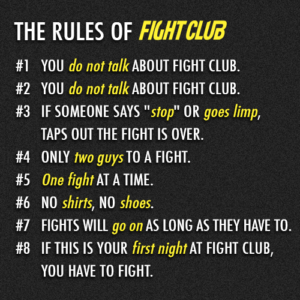I’m on vacation this week so my friends are taking over the Project! Enjoy their content, connect with them, and share the content with new people! Some amazing voices coming to you this week!
Enjoy this post by Greg Modd!
Instagram, Twitter, and Facebook are entertaining but there is an adult side to social media platforms. One is called OnlyFans that HR professionals need to be aware of that is in the market. Kirsten Vaughn, 24, created an account to pad her bank account while working as a mechanic at Don Ayres Honda dealership in Fort Wayne, Indiana. She had the potential to be the first woman master technician at the dealership. However, Kirsten’s colleagues discovered her OnlyFans account and she claims that was when the sexual harassment began. A month after she created the account, she was terminated from her mechanic position for violating company policy.
Management met with Vaughn prior to her termination and in a recorded conversation the dealership’s HR leader Jason Johnston said “If there were coworkers over there who had access to your page, that might encourage them to approach you with unwanted sexual conduct or comments,” wow… suppose this could be interpreted as a blame the victim defense.
How should HR professionals handle these situations? The Association of Workplace Investigators have guiding principles to assist investigators to enhance the quality of workplace investigations:
- The decision to Conduct an Investigation
- Choice of Investigator
- Scope of Investigation
- Investigation Planning
- Communicating with Employer Representatives and Witnesses
- Confidentiality and Privacy
- Evidence Gathering and Retention
- Witness Interviews
- Documenting the Investigation
- Investigation Findings
- Reports
Wow, that’s a long and complicated list of guiding principles. What do they mean “decision to conduct an investigation” can an HR department ignore sexual harassment complaints? No, as employers are legally mandated to investigate harassment, retaliation, discrimination, and certain other types of complaints. Common mistakes made by HR departments in employee relations investigations are failing to plan, ignoring complaints, delaying an investigation, and losing objectivity. Bias is real folks…
Employee relations are complex and workplace investigations are an important piece to the puzzle. Business is about relationships. More importantly positive relationships. For HR professionals to be successful in the workplace they must be trusted advisors to both the business managers and employees. This is a challenging position to be in for most HR pros and one that sometimes can appear to be in conflict.
The bottom line, the sights and sounds human resources professionals are exposed to can be some of the strangest human interactions. Some HR pros aren’t equipped to manage the employee relations complications that come, and it can be an expensive lesson for the employer. My dear friend calls it a lesson in litigation. We can do better and be better if we simply leverage our network’s knowledge to help in these challenging situations. You don’t have to do this alone as we are truly better together.

Bio – Greg Modd is the Principal Consultant at PPC, DisruptHR speaker, and a United StatesAir Force veteran who served two tours in Iraq and one tour in Afghanistan. PPC aims to mitigate risk for small business owners through outsourced workplace investigations.

